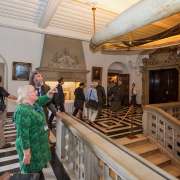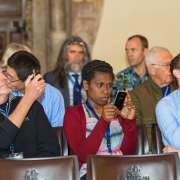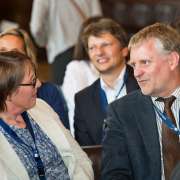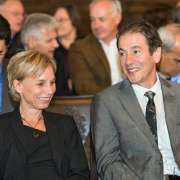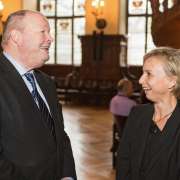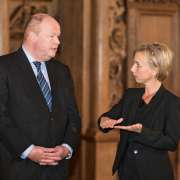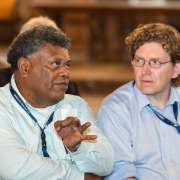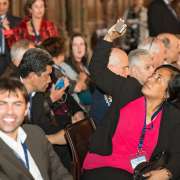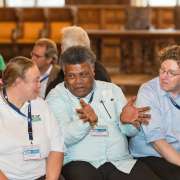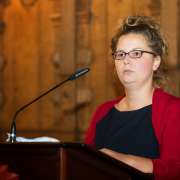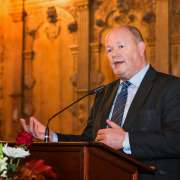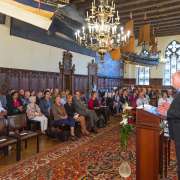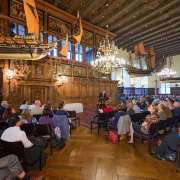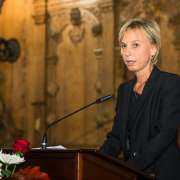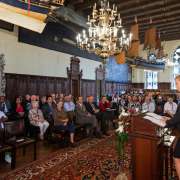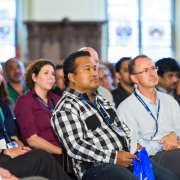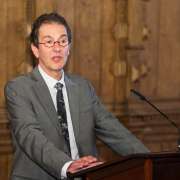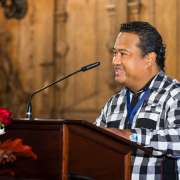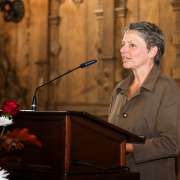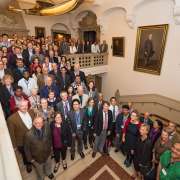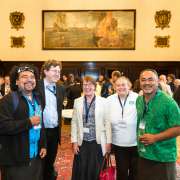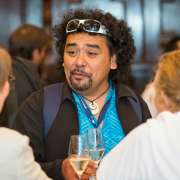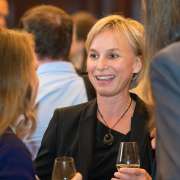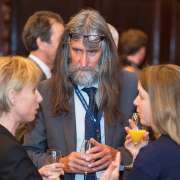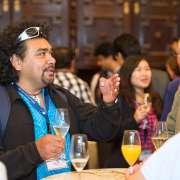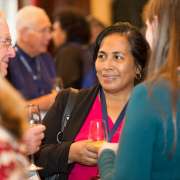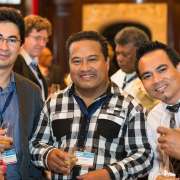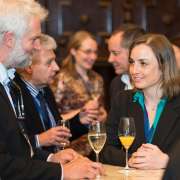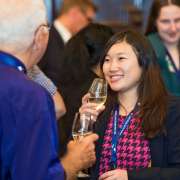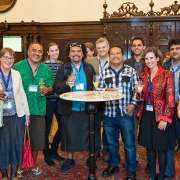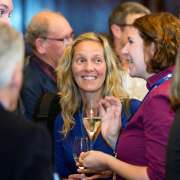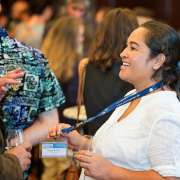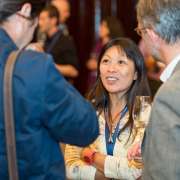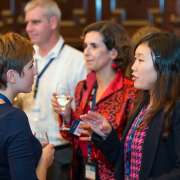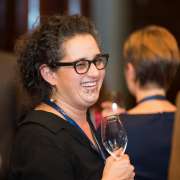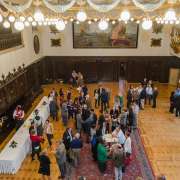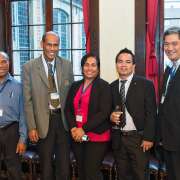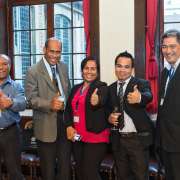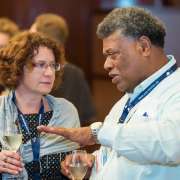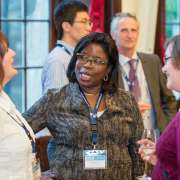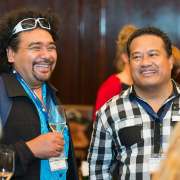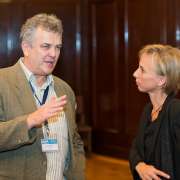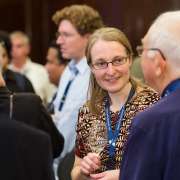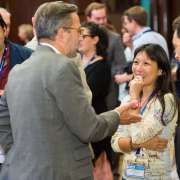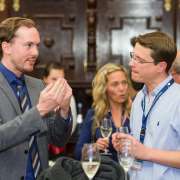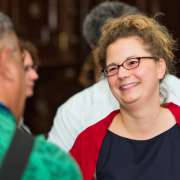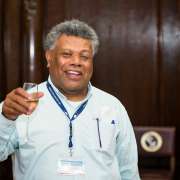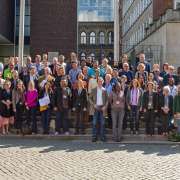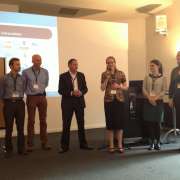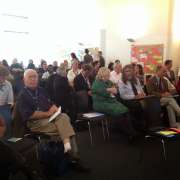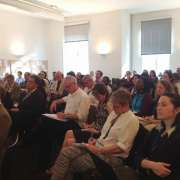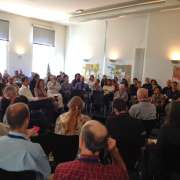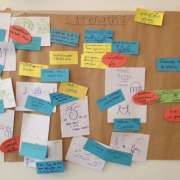Main menu
PACE-NET Plus Bremen Conference & Think-Tanks
At the Bremen PACE-Net Plus Conference, selected participants will identify priority areas for future joint research cooperation between Europe and the South Pacific to address the global challenges, and identify funding options and potential participating institutions. These areas will be discussed in three Think-Tanks, which are interactive sessions for exchanging ideas, thinking about future needs/priorities and providing recommendations.
The Conference has long-term, medium-term, and short-term objectives. The recommendations of all Think-Tanks will feed into the ongoing bi-regional policy dialogue which seeks to enhance scientific and technological cooperation on the decision maker level. The recommendations will:
- define and update science, technology and innovation (STI) priorities in the area: future EU-Pacific cooperation, recommendations to policy makers, and identification of innovation niches;
- define joint initiatives such as calls for research, exchange of knowledge between the Pacific and EU and vice-versa, programming work (potential synergies, use of existing programmes); and
- define joint activities such as summer schools, twinning of labs, and designing projects.
With the Think-Tanks in Bremen, we hope to initiate and feed into bi-regional and operational communities of work and of practice in the areas of the participants’ interest. The PACE-Net Plus project considers itself a facilitator of these communities. All participants will thus be invited to participate fully in the 2½ days of the Conference as part of an individual Think-Tank, the plenary sessions, and to become a part of the project community.
- Think-Tank 1: Tackling Non-Communicable Diseases (NCDs): Lifestyle options for improved nutrition and well being
- Non-Communicable Diseases (NCDs) are recognized by the World Health Organization (WHO) as the currently leading cause of death in the world. More than 80% of all deaths due to NCDs happen in low-to-middle-income countries, including in the Pacific Island Countries and Territories (PICTs). Here, prevalence rates of diabetes, for example, as well as the number of non-diagnosed NCDs are among the highest in the world (60% to 75% of deaths in PICTs are due to NCDs such as obesity, heart disease and diabetes; besides, in some PICTs, the management of complications associated with NCDs accounts for up to 80% of overseas referral expenditures). NCDs can be prevented through interventions that tackle risky lifestyles and well-being issues. This think-tank will explore how a healthier lifestyle and well-being can help prevent NCDs and how surveillance can be improved through greater use of ICTs.
- Think-Tank 2: Exploring the convergence of science and traditional knowledge in aqua- and agriculture for sustainable, healthy living in the 21st century
- The Pacific Islands pose unique conditions for aqua- and agriculture due to their geographic and environmental setting. As a result, specific techniques and knowledge have developed in the region over centuries that may hold valuable lessons for other regions. At the same time, climate and societal changes constitute unprecedented challenges that increase the vulnerability of aqua- and agricultural systems of the Pacific Islands. This workshop will explore the nexus between traditional and modern aqua- and agricultural practices, reviewing the potential of, and future need for, innovations in climate modelling, environmental monitoring, and food production.
- Think-Tank 3: Enhancing community resilience: managing environment, water and wastes under a changing climate
- Urban and peri-urban island states provide a window on our potential global future: high population densities; competition for scarce resources, large waste loads; polluted land and coastal waters; competition for scarce and extreme climate events. This workshop will explore the knowledge necessary to develop community resilience (both human and ecological), as well as the policies and practices required to mitigate impacts of and adapt to changing climates.
|
Corinna Harms Leibniz-Zentrum für Marine Tropenökologie (ZMT) GmbH Fahrenheitstrasse 6 D-28359 Bremen (Germany) Phone: +49-421-238 00 86 Fax: +49-421-238 00 30 e-mail: corinna.harms@zmt-bremen.de |
Prof. Jean-François Marini PACE-Net Plus coordinator IRD, 101 Promenade Roger Laroque BP A5 98848 Noumea (New Caledonia) Phone: +687 26 07 47 Mobile: +687 97 51 98 e-mail: jean-francois.marini@ird.fr |
PACE-NET Plus Bremen Conference & Think-Tanks
| Attachment | Size |
|---|---|
| 634.09 KB | |
| 1.14 MB | |
| 1.66 MB | |
| 9.57 MB | |
| 219.36 KB | |
| 2.59 MB | |
| 852.93 KB | |
| 3.45 MB | |
| 1.07 MB | |
| 1.46 MB | |
| 1.31 MB | |
| 1.06 MB |





